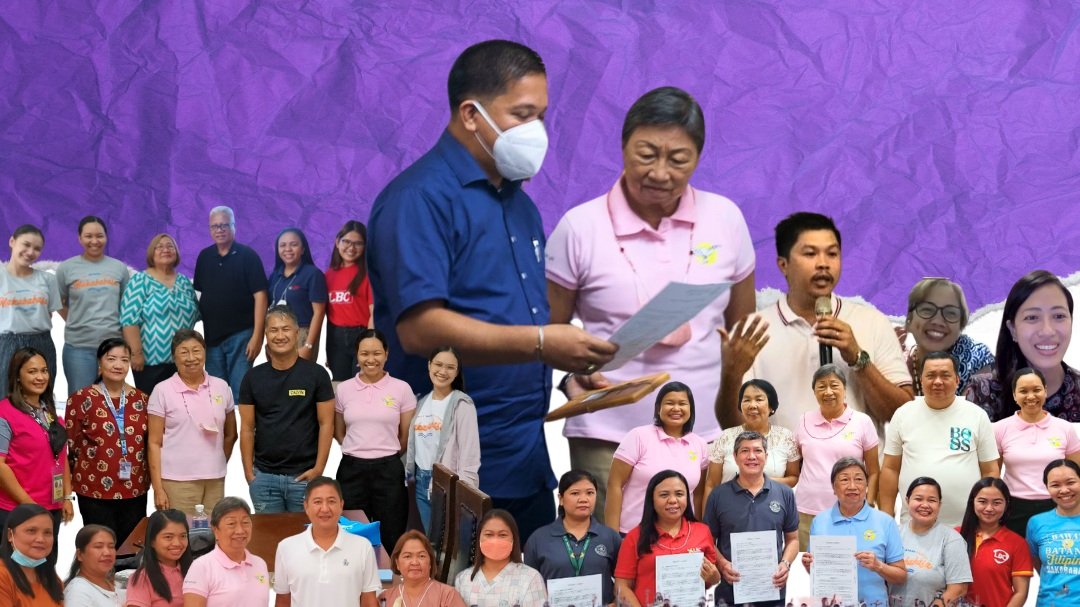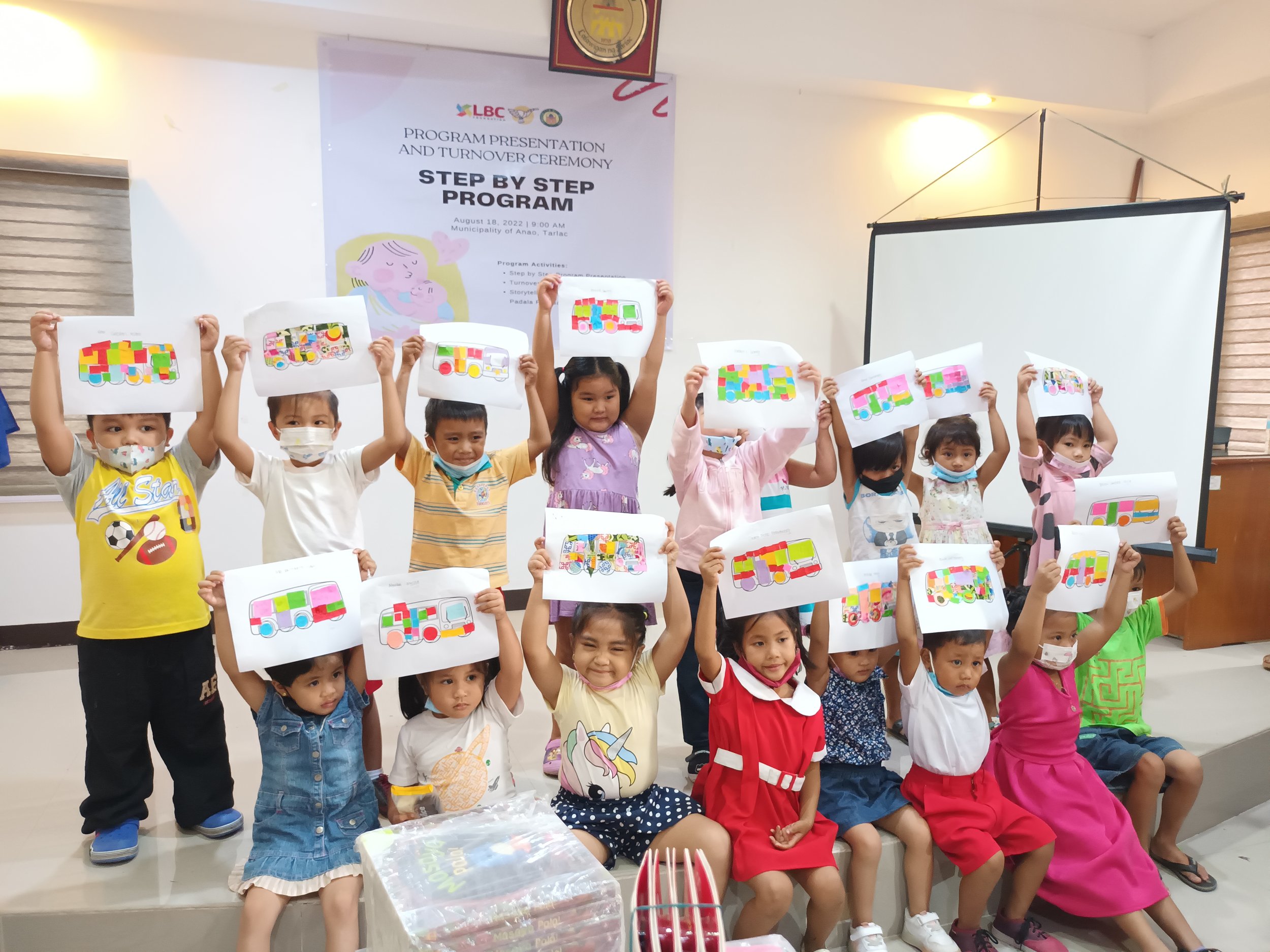Step by Step is committed to creating communities of readers in the Philippines.
It aims to develop the habit of reading and love for books of Filipino children, starting from the prenatal period until preschool age. Its five (5) interconnected programs can be integrated into the existing practices, resources, and systems of local government units, with the mission to capacitate learning partners with various community and home interventions on early learning and early reading.
STEP 1
Unang Isang Libong Araw
In support of RA 11148 or the “Kalusugan at Nutrisyon ng Magnanay Act,” Unang Isang Libong Araw provides learning sessions and materials for health workers and parents on the first 1000 days of life in the areas of health, nutrition, and early stimulation.
Unang Isang Libong Araw has been implemented in four municipalities.
As the first point of contact of expecting parents, the rural health unit is the main implementing arm of the program. Its staff receive training on promoting and including early literacy in maternal health, prenatal care, and early child development, to support parents of zero- to two-year-old children.
The program includes eight training videos and three booklets for both learning partners (parents and rural health workers). 5,640 reading materials have been distributed.
To date, the program has capacitated 60+ health workers and supported 1,400+ parents.
STEP 2
Unang Aklat
In support of RA 8980 or the “Early Childhood Care and Development (ECCD) Act,” Unang Aklat partners with the health care delivery system and health workers of local government units to promote early reading among parents and introduce zero- to three-year-old children to books.
Unang Aklat has been incorporated in the healthcare systems of five municipalities.
As the main implementing arm of the program, health workers are equipped with the essential resources and skills to help parents raise young readers up to three years old.
The program provides learning partners with 11 training videos, two booklets, and one board book.
Overall, it has distributed 4,350 reading materials and capacitated 49 health workers and 1,200 parents.
STEP 3
Read sa RHU
In support of RA 7305 or the “Magna Carta of Public Health Workers,” Read sa RHU conducts training on the importance of early literacy and on effective storytelling for health workers. The program also provides developmentally-appropriate reading materials for children who visit the health facilities.
The rural health unit is the main implementing arm of Read sa RHU. After attending learning sessions on early literacy and effective storytelling, health workers conduct storytelling sessions in their health facilities. These learning partners also receive developmentally-appropriate books to lend and read to their young visitors.
STEP 4
Mahilig kaming Magbasa
In support of RA 8980 or the “Early Childhood Care and Development (ECCD) Act,” Mahiling kaming Magbasa promotes the value of early reading practices within communities through training of the child development workers and implementation of reading camp sessions.
Mahilig kaming Magbasa has been carried out in 26 communities.
The Municipal Social Welfare and Development Office serves as the main implementing arm of the program. Aside from the 50 picture books for each center, child development workers are equipped with workshops on the importance of reading and implementation of reading camp sessions.
They advance early literacy in their communities by conducting reading and storytelling activities with children.
The program has distributed 1,690 reading materials and supported 520 parents.
STEP 5
Handang Magbasa
In support of RA 10410 or the “Early Years Act (EYA),” Handang Magbasa equips parents and child development workers with the information, materials, and skills necessary to enhance the reading readiness skills of three- to four-year-old children.
Handang Magbasa has partnered with two foundations and 43 child development centers over the years.
There are two main implementing arm for this program: child development workers and parents. Both are given learning and reading interventions to teach reading readiness skills at school and cultivate the culture of reading at home.
The main goal is to prepare three- to four-year-old child development center students for reading. The program includes the provision of training videos and training manual for each child development worker, 40 Adarna House Big Books for each child development center, and activity videos, training manual, and four Adarna House Picture Books for each parent.
It has distributed over 7,943 reading materials, capacitated 43 child development workers, and supported 1,724 parents and children.

















